by Davey D
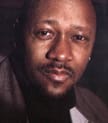 This past Sunday over 1,200 people showed up at Salem Methodist Church in Harlem to listen and weigh in on a discussion that has been raging on in our communities but is oftentimes swept under the rug. The historic election of Barack Obama has been a source of pride for many. Record numbers of Black people came out and voted for him. His largest percentage, a whooping 94 percent of Black folks, punched his name in the ballot booth. However, many did so wondering if an Obama election will mean that pressing issues within the African American community will be addressed or if his election would symbolize to those outside the community that racism was a thing of the past?
This past Sunday over 1,200 people showed up at Salem Methodist Church in Harlem to listen and weigh in on a discussion that has been raging on in our communities but is oftentimes swept under the rug. The historic election of Barack Obama has been a source of pride for many. Record numbers of Black people came out and voted for him. His largest percentage, a whooping 94 percent of Black folks, punched his name in the ballot booth. However, many did so wondering if an Obama election will mean that pressing issues within the African American community will be addressed or if his election would symbolize to those outside the community that racism was a thing of the past?
One of the nagging concerns that surfaced during Obama’s historic run was him distancing himself from anything Black. He stayed away from key events ranging from Tavis Smiley’s annual State of the Union – where rival Hillary Clinton showed up – to the ceremonies in Memphis commemorating the 40th anniversary of the death of Dr. Martin Luther King. His republican rival John McCain showed up for that event.
There were always grumblings that Obama was distancing himself from the Black community to appease skittish white voters who lived in the middle of the country who oftentimes made no bones about their reluctance to vote for a Black man. Many of us held our tongues and rationalized that Obama “had to play the game” and “do what was needed” to get elected.
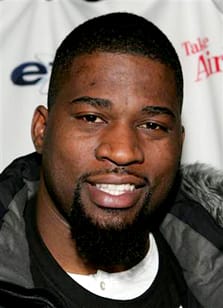 Rap star David Banner explained it best when he suggested that we give Obama a chance and stop asking all these brilliant questions that we never asked white candidates who we often seem to give unconditional support. Let Obama get in the White House first and then push for him to address our issues.
Rap star David Banner explained it best when he suggested that we give Obama a chance and stop asking all these brilliant questions that we never asked white candidates who we often seem to give unconditional support. Let Obama get in the White House first and then push for him to address our issues.
Banner’s remarks were supported by scholars like Dr. Michael Eric Dyson, who often talked about Obama giving Black folks a proverbial wink as he campaigned. Dyson told us that Obama understood our concerns but had to roll a certain way to get elected. He was catching unprecedented hell, including several thwarted assassination attempts by racist whites. With all that pressure, the least we as Black folks could do was keep our mouths shut and help clear the way for an Obama victory, which at the end of the day would be ours.
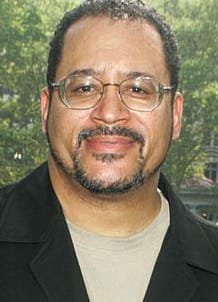
While a substantial number of Black folks heeded the suggestions of Banner, Dyson and other supporters, there were others like Glen Ford of the Black Agenda Report who boldly made the case that Obama should not get a pass, and his actions and words, whether he was running for office or in office, should be called into question if they weren’t in alignment with issues that the community was talking about.

So with all this in mind, the stage was set for the Great Harlem Debate. Some thought that such a discussion was premature because Obama hasn’t been sworn in yet, while others felt it was reactionary, not realizing that many of the participants have debated each other throughout the campaign. Now was just as good as any time to have this discussion.
Obama is the president of the United States and not the president of Black America. Hence it would be up to the community to define and articulate their concerns just as they would to any other person sitting in the Oval Office. To not do so would be foolhardy.
This past Sunday attendees heard compelling remarks from great scholars and community leaders. Each speaker was given eight minutes to make their case. Here’s some highlights on how it unfolded.
Dr. 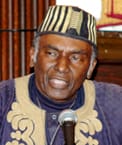
He said we can’t be blinded by our ideologies so much so that we refuse to accept and be a part of the change that is occurring. He talked about how having a Black family in the White House spoke volumes to many who felt left out as well as people all over the world. He said Obama’s image gets to replace the image of 50 Cent. Jeffries talked about the excitement that people in other countries like Germany had with Obama being in the White House. He also raised eyebrows when he said that Obama is the start of capitalism collapsing. He said Wall Street could be replaced with Afrika Street.
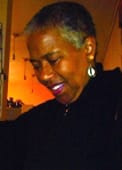
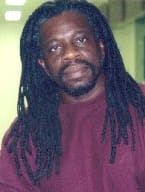
She spoke at length about a racial identity and how Obama’s victory has brought about a post racial climate. She talked in detail about the type of negative impact that is having and will have on Black people, who are increasingly being told that racism no longer exists. She also talked about how there are now all these articles and pundits who have been speaking out in recent weeks insisting that Obama is not Black, as if to take away from the significance of his victory and also to further keep him disconnected from us.
She concluded her remarks by reading an excerpt from a letter that Obama had penned in response to Kenyan officials who reached out asking for help. The letter talked about that help would be forthcoming if Kenya’s foreign policy was in line with that of the U.S. The letter noted that the U.S. would need to set up a base in that country to set up their Africom headquarters. You could tell by the crowd’s reaction that people were shocked to hear that.
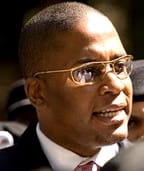
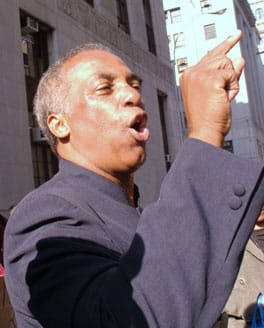
Glen Ford followed Barron. The pair have debated Obama on a couple of occasions in the past. He wasted no time in laying out a compelling case against the president-elect by talking about how our blind support of Obama has allowed him to run to the right and stay there. Ford underscored his remarks by describing in detail the concerns raised behind Obama’s cabinet picks.
He talked about Robert Gates, who he described as a warmonger and a war criminal who was linked to the Iran Contra scandal and the mining of harbors in Nicaragua.
Ford laid out arguments against cabinet pick Susan Rice, who he said was aligned with George Bush in her support of the war we have with Somalia. He talked about Obama’s chief of staff Rahm Emanuel and how his staunch Zionist connections should be cause for concern. Ford also talked about Obama’s economic team and how many were on board the ship that has gotten us into the economic mess we are in now.
Ford concluded by reminding us that Obama’s victory means he has power. He is in a position to set the agenda and make sound decisions that will keep the interests of those who are often taken for granted and adversely affected by policy decisions.
Listen to the Great Harlem Debate
Those are just a few of the many highlights. Listen to the Great Harlem Debate on Breakdown FM by clicking these links: http://odeo.com/episodes/23767113-The-Great-Harlem-Debate-pt1 and http://odeo.com/episodes/23767115-The-Great-Harlem-Debate-pt2.
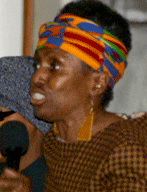
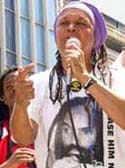
Email Davey D at mrdaveyd@aol.com and visit Davey D’s Hip Hop Corner. Listen to Davey on Hard Knock Radio Monday-Friday at 4 p.m. on KPFA 94.1 FM or www.kpfa.org.




